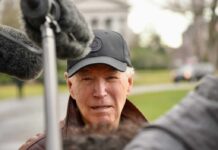
A series of unexplained illnesses over the past several years have pointed to the troubling possibility that an American adversary has been using some type of technology against U.S. diplomats and other officials abroad.
The phenomenon has become known as “Havana Syndrome” since it was first reported in 2016 at the U.S. embassy in Cuba. Commonly reported symptoms included headaches, cognitive difficulties, and loss of balance.
A report last year based on expert research — and endorsed by the National Academies of Sciences, Engineering, and Medicine — concluded that “pulsed electromagnetic energy” could have been used by a foreign government in order to cause the symptoms.
This week, however, U.S. officials from the CIA and other entities released their own assessment, determining: “Available intelligence consistently points against the involvement of U.S. adversaries in causing the reported incidents. There is no credible evidence that a foreign adversary has a weapon or device that is causing [anomalous health incidents].”
For his part, U.S. Sen. Marco Rubio (R-FL) is not convinced by the intelligence community’s report. In a statement on Thursday, he promised to keep digging for details about the cause of mysterious illnesses reported in nations around the world.
“Something happened here and just because you don’t have all the answers, doesn’t mean that it didn’t happen,” he wrote. “I will not accept that all these reported cases are just coincidences and I will continue to work on this issue until we receive real explanations.”
The @CIA took the investigation of “Havana Syndrome” seriously
But when you read about the devastating injuries it’s hard to accept it was caused by AC units & loud cicadas
Something happened here & just because we don’t have all the answers doesn’t mean it didn’t happen
— Marco Rubio (@marcorubio) March 2, 2023
Rubio, who serves as vice chairman of the Senate Intelligence Committee, pledged that the panel “will continue our ongoing independent review on AHIs and take steps to ensure that those officers affected by AHIs are receiving immediate and comprehensive care as required by law.”
He took a shot at the intelligence community for essentially writing off the complaints of roughly 1,500 U.S. officials who reported such illnesses by concluding that they “were simply experiencing symptoms caused by environmental factors, illness, or preexisting conditions.”
The Florida Republican said that those who crafted the recent assessment are “potentially rushing to a conclusion while a substantial number of questions remain.”
Meanwhile, attorney Mark Zaid reacted to the report by declaring that many of the patients he represents feel “very much betrayed” by the intelligence community, adding: “They feel that this has been completely ignored and whitewashed. This is something we’re going to continue to push until we get much deeper into the truth.”
































